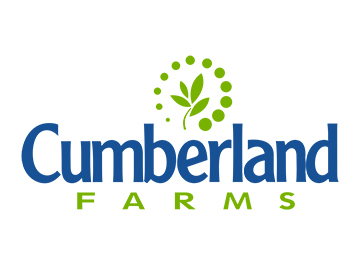MASS PACK APPEALS THE CUMBERLAND FARMS INITIATIVE
Massachusetts Package Stores Association (MPSA) member retailers of beer, wine and spirits from across the state have banded together to challenge the decision by Attorney General Maura Healey to certify Initiative Petition No. 19-14 (the “Cumberland Farms Initiative”) for a “Law Relative to the Sale of Beer and Wine by Food Stores.” Plaintiffs, through their attorneys at McDermott Will & Emery LLP, are asking the Supreme Judicial Court to declare that the Attorney General’s certification of the Cumberland Farms Initiative was not in compliance with the Massachusetts Constitution. They also seek to enjoin the Secretary of the Commonwealth from placing the measure on the ballot in the 2020 election.
Plaintiffs filed the constitutional challenge because they strongly believe this Frankenstein-like ballot initiative put forward by Cumberland Farms violates state law. When Massachusetts adopted the ballot initiative process, the constitutional amendment allowing for popular initiatives also contained a number of safeguards to prevent special interests from securing changes to state law by misleading the public. The Cumberland Farms Initiative would run roughshod over these safeguards.
Cumberland Farm’s efforts have resulted in a ballot initiative that is already confusing voters and the media. The confusion began with the initiative title, “Law Relative to the Sale of Beer and Wine by Food Stores.” Voters are immediately misled because the question addresses four independent questions of long standing public policy, each unrelated to the other, except that they all reference alcoholic beverages. The four distinct and unrelated questions listed in the complaint include:
- Should retail sales of wine and beer, but not spirits, be permitted at an unlimited number of locations within a municipality, so long as those locations also sell food?
- Should a single entity be allowed to own or control an unlimited number of licenses for the retail sale of wine, beer and spirits, both across the Commonwealth and within a city or town?
- Should retail purchasers of wine, beer and spirits be required to present identification, regardless of apparent or actual age, and who should decide which identification is acceptable?
- Should tens of millions of dollars in alcohol excise taxes be diverted each year from the General Fund to a separate fund to be used solely for the operation of the Alcoholic Beverages Control Commission?
Associations representing all three tiers within the alcohol beverages industry emphatically warned the Attorney General prior to certification about the misleading title and its many unrelated provisions within the Cumberland Farms Initiative. Memoranda presented to the Office of the Attorney General repeatedly demonstrated how the confusing and unrelated language in the Cumberland Farms Initiative will inevitably misleads voters. This “logrolling,” including unrelated provisions in a single ballot question, appears to be an intentional effort by Cumberland Farms, owned by England based E.G. Group who controls over 7000 convenience and gas stores worldwide.
Under the current law, no business in Massachusetts has a monopoly on liquor licenses because State law mandates that every Section 15 licensee may hold at most 7 alcohol retail licenses in 2019, and 9 licenses beginning in 2020. Cumberland Farms currently has 7 licenses, which is the same amount that all other chains are allowed. Cumberland Farms introduced its ballot question to circumvent the legislative process by confusing voters into giving this single company unprecedented control of the retail alcohol marketplace with a potential 200-store network.
Cumberland Farms’ objectives are accomplished by the provisions within the Cumberland Farms Initiative that immediately create a new unlimited food store alcohol license classification outside the existing Massachusetts system, while also removing the cap on how many stores a licensee can own. In 2024, Cumberland Farms would allow their competition to catch up by eventually terminating the entire statewide and local limits on sole control over Section 15 licenses. Establishing a virtual monopoly for Cumberland Farms is clearly the intended outcome.
The logrolling continues as other provisions in the Cumberland Farms Initiative materially alter laws for ID verification. Another buried change will transfer relied upon excise tax funds from the state’s general account to a new trust account. These jumbled together provisions collectively rework how alcohol is sold in Massachusetts on multiple, unrelated dimensions.
The plaintiffs appealing the Cumberland Farms Initiative are led by Benjamin Weiner. Mr. Weiner is the representative of his family’s retail beer, wine and spirits stores businesses, which are collectively known as Sav-Mor Spirits. Mr. Weiner is also the President of the Board of Directors to the Massachusetts Package Stores Association. Other plaintiffs include Ronald T. Maloney, Jr., owner of Julio’s Liquors; Cynthia Newell, owner of Greenwood Wine & Spirits; Sean Barry, owner of Four Seasons Wine & Liquor; Tina M. Messina, owner of the Wine ConneXtion; Max Haivanis, General Manager for both Reservoir Wine & Spirits, and for Wollaston Wine & Spirits; and Steven Schechterle, President of Spirit Shoppe stores. Collectively, they represent second and third generation small businesses across Massachusetts.
The plaintiffs are part of a community of local retailers across Massachusetts who employ over 19,000 individuals and help generate approximately $90 million in excise taxes to the state. These locally owned stores are strongly committed to supporting the communities they serve. This is demonstrated by their roles as gatekeepers against illegal sales to minors and the numerous charitable events and organizations they frequently sponsor within the served areas and beyond.
Mr. Weiner speaks for all the plaintiffs stating, “The entire retail alcohol beverages industry in Massachusetts has been turned upside down by the Cumberland Farms Initiative. This appeal is a Strength in Unity moment for all locally owned retailers of beer, wine and spirits against a retail Goliath from the UK that is trying to dupe voters into giving them unparalleled control of the Massachusetts marketplace. One only needs to look at the unrestrained alcohol problems that are plaguing the UK to see where this will lead. The Cumberland Farms Initiative is an abuse of the initiative petition process that never should have gotten this far.”

